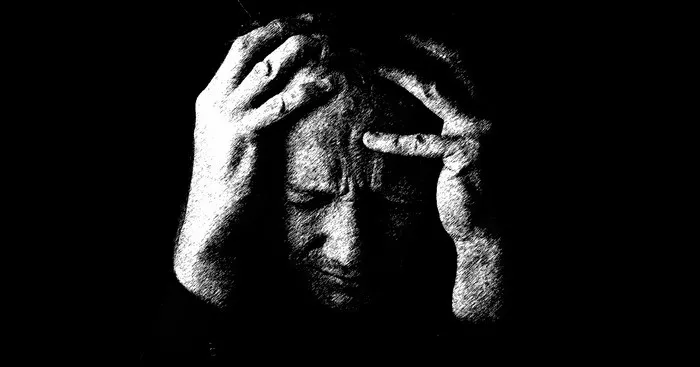Overview of ADHD and Bipolar Disorder
Attention-deficit/hyperactivity disorder (ADHD) and bipolar disorder are two distinct yet often co-occurring mental health conditions that can present significant challenges in diagnosis and treatment. ADHD is characterized by difficulties with attention, hyperactivity, and impulsivity, while bipolar disorder involves episodes of depression, mania, or hypomania. The co-occurrence of these conditions, known as comorbidity, can complicate treatment strategies due to overlapping symptoms and potential interactions between medications.
Managing ADHD and bipolar disorder simultaneously requires a comprehensive approach tailored to the individual’s specific symptoms and needs. While medications play a crucial role in symptom management, it is essential to weigh the potential benefits and risks carefully.
Medications for ADHD and Bipolar Disorder
There are two primary classes of medications used to treat ADHD: stimulants and non-stimulants. Stimulants, such as methylphenidate and amphetamines, increase the levels of neurotransmitters like dopamine and norepinephrine in the brain, improving focus and attention. Non-stimulant medications, such as atomoxetine and guanfacine, target different neurotransmitter systems to achieve similar effects.
In individuals with bipolar disorder, the use of stimulant medications can be controversial due to concerns about triggering manic or hypomanic episodes. However, research suggests that when used judiciously and in combination with mood stabilizers or atypical antipsychotics, stimulants can be safe and effective for managing ADHD symptoms without exacerbating mood instability.
Non-stimulant medications may be preferred for individuals with bipolar disorder, as they generally have a lower risk of inducing mood episodes. Atomoxetine, in particular, has shown promise in treating ADHD symptoms in individuals with bipolar disorder without precipitating manic episodes. Additionally, medications like bupropion and tricyclic antidepressants may be considered for ADHD management in individuals with bipolar disorder, although they should be used cautiously due to their potential to induce manic symptoms.
Specific Medications for Co-Occurring ADHD and Bipolar Disorder
When selecting medications for individuals with comorbid ADHD and bipolar disorder, healthcare providers must consider the unique characteristics of each condition and tailor treatment accordingly. Lithium, lamotrigine, and certain atypical antipsychotics are commonly prescribed mood stabilizers that can help manage bipolar symptoms while also providing some benefit for ADHD symptoms.
For individuals who require additional ADHD symptom control, combination therapy with a mood stabilizer and a carefully titrated stimulant or non-stimulant medication may be necessary. Close monitoring for signs of mood destabilization is essential, and adjustments to medication dosages may be needed to achieve optimal symptom management while minimizing the risk of mood episodes.
Potential Side Effects and Management Strategies
Like all medications, those used to treat ADHD and bipolar disorder can cause side effects. Common side effects of stimulants include insomnia, decreased appetite, and increased heart rate. Non-stimulant medications may cause drowsiness, dizziness, or gastrointestinal upset. In individuals with bipolar disorder, mood stabilizers and atypical antipsychotics can lead to weight gain, metabolic changes, and cognitive dulling.
To minimize side effects and enhance medication tolerability, healthcare providers may recommend starting with low doses and gradually titrating upward as tolerated. Regular monitoring and open communication between patients and providers are essential for identifying and addressing any adverse effects promptly.
Importance of Individualized Treatment
It is crucial to recognize that the “best” medication for managing ADHD in individuals with bipolar disorder can vary significantly depending on individual factors such as symptom severity, medication tolerability, and coexisting medical conditions. What works well for one person may not be suitable for another, highlighting the importance of personalized treatment approaches.
In addition to medication management, non-pharmacological interventions such as therapy, lifestyle modifications, and support groups can play a valuable role in managing symptoms and improving overall well-being. Cognitive-behavioral therapy (CBT) and psychoeducation can help individuals develop coping strategies for managing ADHD and bipolar symptoms, while lifestyle changes such as regular exercise, adequate sleep, and stress reduction techniques can complement medication therapy.
Conclusion
Managing ADHD and bipolar disorder concurrently requires a comprehensive and individualized approach that balances symptom control with minimizing the risk of mood destabilization. While medications are an essential component of treatment, they should be used judiciously and in conjunction with non-pharmacological interventions to optimize outcomes and improve quality of life for individuals with these co-occurring conditions.
For more information and support regarding ADHD and bipolar disorder, consider consulting reputable sources such as the National Alliance on Mental Illness (NAMI), the American Psychiatric Association (APA), or the Depression and Bipolar Support Alliance (DBSA).
FAQs
Can a bipolar person take ADHD medication?
Yes, individuals with bipolar disorder can take ADHD medication, but it should be carefully monitored by a psychiatrist. Certain ADHD medications like stimulants may exacerbate manic symptoms in bipolar individuals, so treatment decisions should be made cautiously and with close supervision.
How is ADHD treated in comorbid bipolar disorder?
Treating ADHD in comorbid bipolar disorder involves a careful balancing act. Medications like stimulants commonly used for ADHD may need to be avoided due to the risk of triggering manic episodes. Non-stimulant medications or behavioral therapies are often preferred in such cases, tailored to the individual’s needs.
Is ADHD linked to bipolar disorder?
While ADHD and bipolar disorder are distinct conditions, they can coexist in some individuals. Research suggests a genetic overlap between the two disorders, indicating a potential shared underlying vulnerability. However, the exact nature of the relationship between ADHD and bipolar disorder is still being studied.
Related topics:
- Nature’s Remedy: The Best Herbal Treatments for Depression
- Exploring the Best Medications for Depression and Anxiety
- Red Light Therapy: A Promising Approach for Depression


